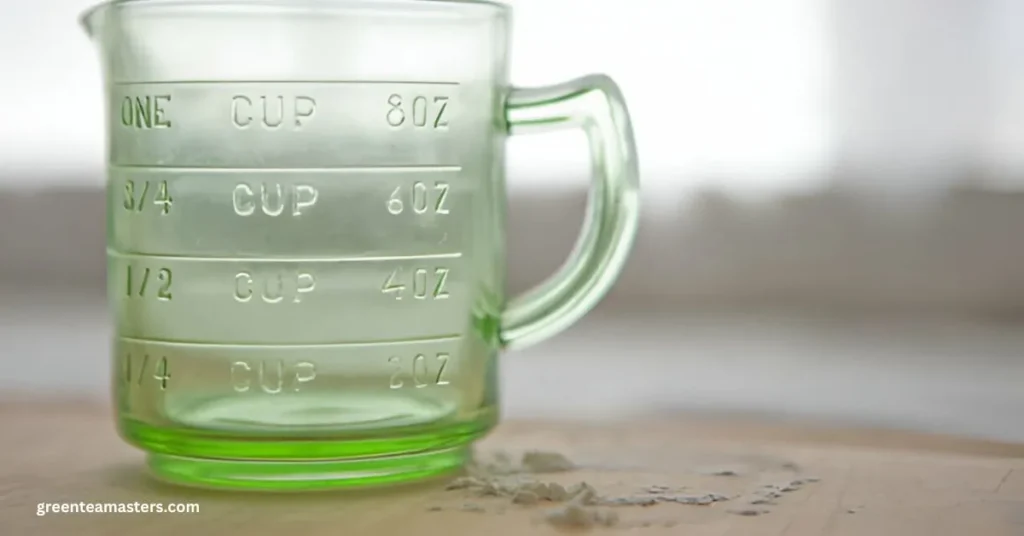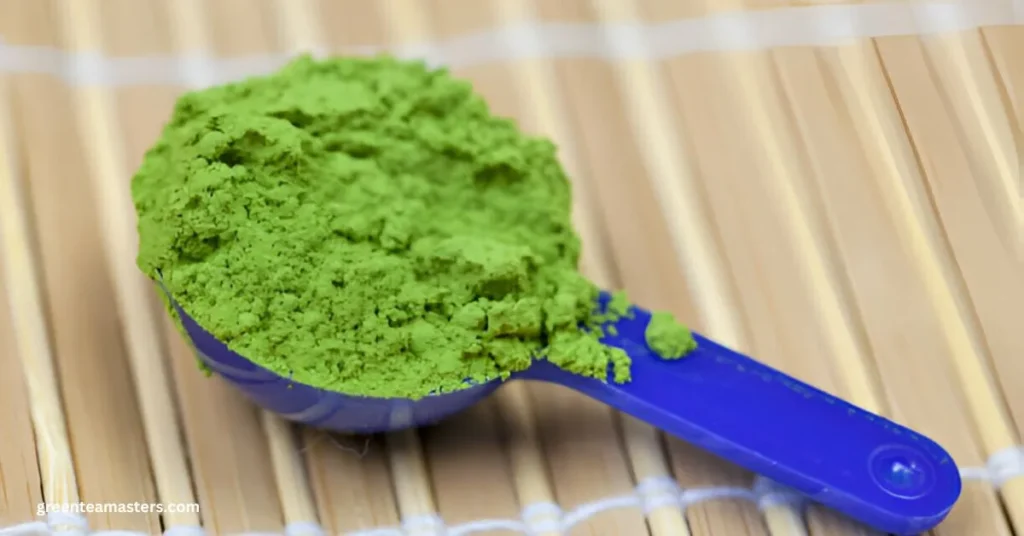Matcha, the vibrant green powder derived from finely ground tea leaves, has become a beloved superfood in recent years, praised for its potential health benefits and unique, nuanced flavor profile. However, as with any food or beverage, one common question that often arises is whether matcha is acidic and how it might affect our bodies.
In this article, we’ll delve deep into the pH levels of matcha, exploring the science behind its acidity (or lack thereof) and the factors that can influence it. We’ll also examine how matcha’s acidity compares to other popular drinks, and discuss the potential health implications of consuming this powdered green tea. By the end, you’ll have a thorough understanding of the pH-related facts about matcha, empowering you to make informed decisions about incorporating it into your diet.
Understanding pH and Acidity

Before we dive into the specifics of matcha’s acidity, it’s essential to understand the basic principles of pH and how it relates to the acidity or alkalinity of a substance.
The pH scale is a numerical representation of the concentration of hydrogen ions (H+) in a solution, ranging from 0 to 14. A pH value of 7 is considered neutral, while values below 7 indicate acidity, and values above 7 indicate alkalinity. The lower the pH value, the more acidic the substance is, and vice versa.
When it comes to beverages and foods, the pH level is determined by the concentration of hydrogen ions present. A higher concentration of hydrogen ions results in a lower pH value, indicating higher acidity, while a lower concentration of hydrogen ions leads to a higher pH value, indicating alkalinity.
The pH of our bodies, particularly our blood, is tightly regulated to maintain a slightly alkaline state, typically around 7.35 to 7.45. This narrow pH range is essential for the proper functioning of our cells and the overall health of our bodies.
The Acidity of Matcha: Exploring the pH Levels
Now, let’s dive into the specific pH levels of matcha. Contrary to popular belief, is matcha acidic? matcha is not highly acidic. In fact, it is generally considered to be slightly acidic or even neutral, with a pH ranging from approximately 5.5 to 7.0.
To put this into perspective, the pH of water is considered neutral at 7.0, while beverages like coffee and fruit juices often have a lower pH, indicating higher acidity. For example, the pH of coffee typically falls between 4.5 and 5.0, making it considerably more acidic than matcha.
It’s important to note that the pH level of matcha can be influenced by various factors, such as the growing conditions, processing methods, and even the way it is prepared. Let’s explore these factors in more detail.
Factors Influencing Matcha’s Acidity
Growing Conditions
The pH of the soil, water, and fertilizers used in the cultivation of the tea plants used to make matcha can all contribute to the final pH of the resulting powder. Matcha produced from plants grown in more acidic environments may have a slightly lower pH, while those grown in more alkaline conditions may be closer to neutral.
Processing Methods
The way matcha is processed can also impact its acidity. For instance, if the tea leaves are steamed for a longer duration during production, the pH may be raised slightly, making the matcha closer to neutral. Additionally, blending different varieties of tea leaves can influence the overall acidity of the final product.
Preparation Technique
The pH of the water used to prepare matcha can also affect the acidity of the final beverage. If the water is highly acidic or alkaline, it can alter the pH of the matcha tea. Furthermore, the brewing temperature can influence the extraction of certain compounds, which can, in turn, impact the perceived acidity of the matcha.
Oxidation and Storage Conditions
Exposure to air, moisture, light, and fluctuations in temperature during storage can also lead to slight changes in the chemical composition of matcha, potentially resulting in a slight increase in acidity over time.
Understanding these factors is crucial in comprehending the nuances of matcha’s pH levels and how they may vary depending on the specific conditions and preparation methods involved.
Matcha’s Alkalizing Effect on the Body
While matcha may be considered mildly acidic in its raw form, it is noteworthy that it can have an alkalizing effect on the body when consumed. This is due to the presence of certain compounds, particularly catechins and amino acids, that can help neutralize acidity and promote a more balanced pH in the body.
Catechins, such as the renowned epigallocatechin gallate (EGCG), are powerful antioxidants found abundantly in matcha. When these compounds are metabolized, they can contribute to an alkaline state, potentially offsetting the mild acidity of the tea itself.
Furthermore, matcha is rich in the amino acid L-theanine, which has been studied for its ability to promote relaxation and a sense of well-being. Interestingly, L-theanine may also play a role in the tea’s alkalizing properties, helping to balance the body’s pH levels.
This unique combination of beneficial compounds in matcha suggests that its overall impact on the body’s pH balance may be more alkalizing than acidic, despite its slightly acidic nature in its raw form.
Matcha vs. Other Popular Beverages: Comparing Acidity Levels
To better understand the acidity of matcha, it’s helpful to compare it to other popular beverages that are often consumed on a regular basis.
Coffee
As mentioned earlier, coffee is generally more acidic than matcha, with a pH range of 4.5 to 5.0. This higher acidity level can potentially contribute to issues like acid reflux, tooth enamel erosion, and gastrointestinal discomfort for some individuals.
Fruit Juices
Many fruit juices, such as orange, grapefruit, and cranberry juice, tend to be highly acidic, with pH levels ranging from 2.5 to 4.0. The high acidity of these beverages can be a concern for those with sensitive stomachs or dental health issues.
Sodas and Energy Drinks
Carbonated beverages, including sodas and energy drinks, are also considered highly acidic, with pH levels typically falling between 2.5 and 4.0. The combination of high acidity and high sugar content in these drinks can be particularly problematic for oral and overall health.
Herbal Teas
In comparison to these more acidic options, herbal teas generally have a more neutral pH, often falling between 6.0 and 7.0. This makes them a gentler choice for those seeking to maintain a balanced pH in their bodies.
By comparing the acidity levels of matcha to these other common beverages, it becomes clear that matcha’s mildly acidic nature places it in a relatively moderate range, potentially making it a more pH-friendly option for those concerned about the acidity of their dietary choices.
Potential Health Implications of Matcha’s Acidity
Now that we’ve established the pH levels of matcha and how they compare to other beverages, it’s important to discuss the potential health implications of consuming this green tea powder.
Dental Health
One of the primary concerns about acidic beverages is their potential impact on dental health. Highly acidic drinks can erode tooth enamel over time, leading to increased sensitivity and an increased risk of cavities. However, the mildly acidic nature of matcha is generally not considered a significant threat to dental health, especially when compared to more corrosive options like carbonated sodas or fruit juices.
Digestive Health
Acidity in the diet can also be a concern for individuals with sensitive stomachs or conditions like acid reflux. While matcha’s pH may be slightly on the acidic side, it is typically well-tolerated by most people, especially when consumed in moderation. The alkalizing compounds in matcha may even help to counteract the effects of stomach acid, potentially reducing the risk of digestive discomfort.
Overall pH Balance
As discussed earlier, the presence of catechins and amino acids in matcha can contribute to an alkalizing effect on the body, helping to maintain a healthy pH balance. This is particularly beneficial for individuals who may be concerned about the acidity of their overall diet and seek to incorporate more alkaline-promoting foods and beverages.
It’s important to note that while matcha’s acidity is generally not a major cause for concern, individuals with specific health conditions or sensitivities may still want to consult with their healthcare providers before incorporating matcha into their diets. As with any food or beverage, moderation and personal preference should guide one’s consumption.
Strategies for Reducing the Perceived Acidity of Matcha

For those who are particularly sensitive to acidic foods and beverages, or who simply prefer a less tangy taste, there are several strategies that can be employed to reduce the perceived acidity of matcha:
- Preparation Technique:
- Use cooler water (around 160°F or 70°C) when preparing matcha, as hotter water can lead to the extraction of more acidic compounds.
- Adjust the matcha-to-water ratio, using a slightly higher amount of matcha powder to dilute the acidity.
- Additives:
- Mix a small amount of honey, agave syrup, or a pinch of baking soda into the matcha to help neutralize the acidity.
- Avoid excessive sweeteners, as they can potentially negate some of the health benefits of matcha.
- Pairing with Alkaline-Rich Foods:
- Complement your matcha consumption with alkaline-promoting foods, such as leafy greens, fruits, and vegetables, to help balance the body’s pH.
- Proper Hydration:
- Ensure adequate water intake throughout the day to support the body’s natural pH regulation.
By employing these strategies, individuals who are sensitive to acidity can still enjoy the unique flavors and potential health benefits of matcha, while minimizing any perceived discomfort or effects on their pH balance.
Debunking Myths and Misconceptions
Despite the scientific evidence surrounding matcha’s mildly acidic nature, there are still several myths and misconceptions that persist around this topic. It’s essential to address these in order to provide a comprehensive understanding of the facts.
Myth: Matcha is Highly Acidic and Harmful to Teeth and Digestion
As we’ve explored, matcha’s pH level, while slightly acidic, is not considered excessively high or damaging to teeth or the digestive system when consumed in moderation. The mildly acidic nature of matcha is unlikely to cause significant issues for most individuals, especially when compared to more corrosive beverages.
Myth: Matcha is Acidic and Cannot Be Part of an Alkaline Diet
While matcha may have a slightly acidic pH in its raw form, its overall impact on the body’s pH balance is considered alkalizing due to the presence of compounds like catechins and amino acids. Incorporating matcha into an alkaline-focused diet can be a beneficial addition, as it can help neutralize acidity and promote a healthy pH balance.
Myth: Matcha’s Acidity Makes It Unsuitable for Sensitive Individuals
Although individuals with specific health conditions or sensitivities may need to exercise caution, the mildly acidic nature of matcha does not automatically mean it is unsuitable for everyone. With proper preparation and moderation, matcha can be an enjoyable and potentially beneficial addition to the diet, even for those concerned about acidity.
By addressing these common myths and misconceptions, we can provide a more accurate and well-rounded understanding of matcha’s acidity and its potential impact on health and wellness.
Conclusion: Embracing Matcha’s Nuanced Acidity
The acidity of matcha is a complex and multifaceted topic that requires a nuanced understanding. While matcha is slightly acidic, with a pH range of approximately 5.5 to 7.0, it is far less acidic than many other popular beverages, such as coffee, fruit juices, and sodas.
Moreover, matcha’s acidity should be considered in the context of its overall beneficial properties. The presence of alkalizing compounds, like catechins and amino acids, can help offset the mild acidity and promote a more balanced pH in the body.
By understanding the factors that can influence matcha’s acidity, as well as the potential health implications and strategies for mitigating any perceived acidity, consumers can make informed decisions about incorporating this versatile green tea powder into their diets.
Ultimately, the question of whether matcha is acidic is not a simple yes or no answer. It is a matter of degree, context, and individual preferences. By embracing the nuanced understanding of matcha’s acidity, we can unlock the full potential of this remarkable superfood and enjoy its many benefits while maintaining a healthy, balanced pH in our bodies.
FAQ
Matcha is generally considered to be mildly acidic, with a pH range of around 5.5 to 7.0. While it is not as acidic as some other beverages like coffee or fruit juices, matcha does have a slightly acidic nature.
Despite its mild acidity, matcha may actually be beneficial for individuals with acid reflux or other digestive issues. The alkalizing compounds in matcha, such as catechins and amino acids, can help neutralize stomach acid and promote a more balanced pH in the body. However, as with any food or beverage, it’s best to consume matcha in moderation, especially for those with sensitive stomachs.
The mild acidity of matcha is generally not considered a significant threat to dental health, especially when compared to more corrosive beverages like sodas or fruit juices. As long as matcha is consumed in moderation and as part of a balanced diet, it is unlikely to cause significant damage to tooth enamel.
Yes, the acidity of matcha can be influenced by the preparation method. Factors like water temperature, matcha-to-water ratio, and the addition of sweeteners or other ingredients can all affect the perceived acidity of the final matcha beverage.
It is generally recommended to consume matcha with food, as the alkalizing compounds in matcha may be better able to counteract stomach acid when paired with other foods. Drinking matcha on an empty stomach may increase the perception of acidity for some individuals. If you are concerned about the acidity of matcha, it’s best to enjoy it as part of a balanced meal or snack
Visit greenteamasters.com to know more


4 thoughts on “Is Matcha Green Tea Acidic? Facts You Need to Know”